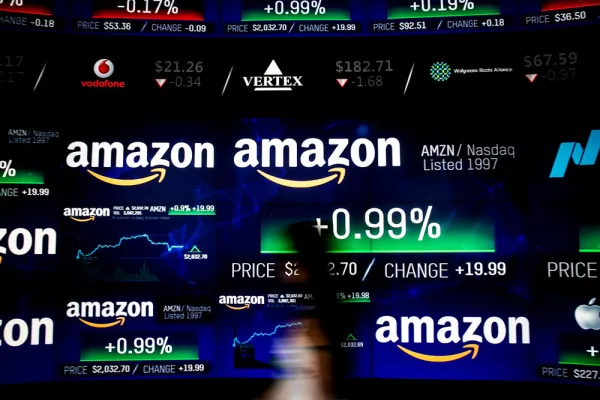Just three years ago, investors had good reason to think Steven Cohen’s hedge fund days might be over.
His firm, SAC Capital Advisors, pleaded guilty in 2014 to insider trading charges after a long-running government investigation that ultimately forced SAC to return money to investors and pay a record $1.8 billion in civil and criminal penalties. But Cohen, who was not convicted of any criminal wrongdoing himself, appears to be gearing up for an even bigger future.
Cohen’s ban on managing outside money will be lifted by as early as January 2018, after he struck a deal in January 2016 with the Securities and Exchange Commission — to settle allegations that he failed to supervise SAC portfolio manager Mathew Martoma, who was found guilty of engaging in insider trading — that prohibited him from managing client money for two years. That means Cohen will once again be allowed to manage money for outside investors. Many expect he will do just that, and the slew of new hires at his rebranded family office, Point72 Asset Management, suggests Cohen has big plans.
One of the firm’s latest hires is Drew Gillanders, a former analyst at Och-Ziff Capital Management, who is expected to focus on health care and consumer sector investments at Point72’s London office, according to people who spoke with the Financial Times, which first reported the move last week. Gillanders will be at least the third recent hire from Och-Ziff, which has endured about $13 billion in investor withdrawals in the past year and now manages $33.7 billion. Two former analysts at Och-Ziff, Peter Goodwin and Jonathan Lin, joined Point72 in 2016 as portfolio managers. Goodwin joined in January at the firm’s New York office, and Lin in August in Hong Kong, according to their LinkedIn profiles. Mark Herr, head of corporate communications at Point72, declined to comment on Gillanders’s move. A spokesman for Och-Ziff did not immediately provide comment.
The Stamford, Connecticut–based Point72 maintains outposts in New York, London, Hong Kong, Tokyo, and Singapore and has a U.S. stock portfolio valued at $14.2 billion. The firm boosted the head count at its Singapore office last year, hiring nine people in 2016 for a total of 27 employees and moving to a new office with capacity for 60 employees, according to a Point72 press release in November. In just the first eight months of 2016 alone, Bloomberg reported that the family office added 31 people — including 21 on the investment side — to the three offices in Asia.
Whereas Point72 has not said it will manage outside money, Cohen’s return is widely anticipated. Bloomberg reported that Cohen wrote a memo to the staff in January 2016 saying that although he might not decide to manage money for outside clients, the opportunity is tempting. In early 2016, Cohen formed Stamford Harbor Capital, a new hedge fund to be run by one of his top deputies, Perry Boyle. Under the terms of Cohen’s settlement with the SEC, he is allowed to own Stamford Harbor but cannot supervise its activities. Some speculate the new hedge fund may be preparing to accept outside money next year.
In SAC’s heyday, Cohen charged a 3 percent management fee and 50 percent incentive fee, despite the longtime industry standard of 2-and-20. The firm made these fees worthwhile, as its flagship fund compounded at 30 percent annually until 2013. Then came the SEC’s investigation, resulting in nine years in prison for Martoma, whom the government charged with making $275 million from trades based on insider information. Cohen himself neither admitted nor denied any wrongdoing.
Since then, the Point72 family office has taken measures to beef up compliance and improve its image. Cohen hired Douglas Haynes in 2014 as managing director of “human capital,” and Haynes is now president of Point72. But as Point72 continues its growth spurt, it’s doing so in a political environment with a view of Wall Street that is still unclear. President Donald Trump’s nominee to head the SEC, Sullivan & Cromwell partner Jay Clayton, will testify before the Senate Banking Committee on March 23.
A review of LinkedIn profiles of current Point72 employees turns up at least nine, including Goodwin, who have joined the New York office since the beginning of 2016 in various investment, research, and compliance roles. Two of the most recent hires are Maxim Kesin, now Point72’s director of machine learning, and Christina Yang, an analyst.
Candidates with quant backgrounds continue to be in high demand, says Michael Castine, a partner at executive recruiting firm Ridgeway Partners. He says that as hedge funds cut back on staff, the entities that are hiring now are family offices, which are becoming trendy places to work.
One of the draws of working at a family office — which may explain why several people from Och-Ziff moved to Point72 — is flexibility in the investments.
“Predominately, because you don’t have to raise assets, depending on the background of the patriarch or matriarch, they’re flexible on where the investment [focus] will be,” Castine says.
Cohen’s hiring of quant professionals suggests he sees big data as an important investment edge. He’s putting money into the strategy, too. Cohen has committed to investing as much as $250 million in Boston-based Quantopian’s trading algorithms, while Point72’s venture capital arm has made a $4 million general partner commitment.






